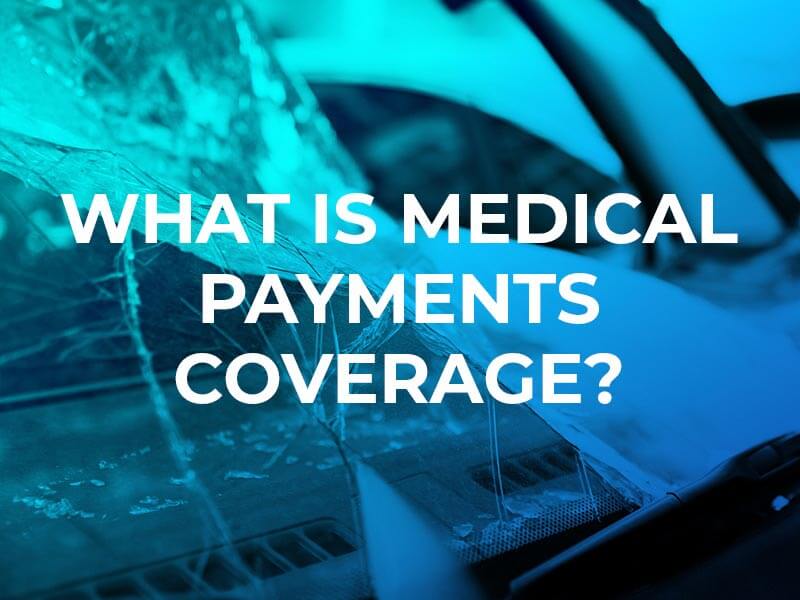What is Medical Payments Coverage?
If you or a passenger have been injured in a car accident or another kind of auto-related incident, you are likely entitled to medical payments coverage. Also known as MedPay or medical expense coverage, these payments help cover the costs of medical care for accident injuries. Medical payments coverage is not dependent on who is at fault in an accident, meaning that anyone involved should be entitled to payment.

What do medical payments cover?
Medical payments coverage will pay most medical costs that a person incurs after a car accident injury. MedPay can be used to treat:
- Passenger injuries
- Injuries sustained as a bicyclist or pedestrian
- Funeral and burial expenses
- Ambulance and EMT expenses
- Hospital visits
- Any dental care needed post-accident
- Doctor visits
- Surgery costs
- Scans and imaging (X-rays, MRIs, etc.)
- Prosthetics
- Professional nursing services
MedPay coverage follows the policyholder. This means that the medical payments coverage is available when you are riding in a friend’s vehicle, using public transportation, riding a bike, or walking down the street. MedPay also follows you in and out of the state in which you are insured.
Who can benefit from medical payments coverage?
MedPay coverage could be useful for a wide range of people because it can cover your family, your employees, and other passengers in your car, along with yourself. In some states, medical payments coverage is mandatory, which in others it is not even available. MedPay coverage is available in Georgia.
How does medical payments coverage work?
There are two basic ways that MedPay works – either as a direct reimbursement to your primary coverage or as supplemental coverage to pre-existing health insurance coverage. It can get confusing if you use MedPay as a supplement to health insurance, particularly when each company differs in how they utilize the combination of coverage. You need to read and understand your particularly policies to be sure which one pays out first.
We will typically see MedPay work when a driver has medical bills that they pay upfront and are then reimbursed by their auto insurance company. When someone uses MedPay as secondary coverage, their health insurance policy will pay for the majority of medical expenses, and they could use MedPay for deductibles or co-pays to get their insurance kicked in.
Do I need MedPay if I have other insurance coverage?
Many people wonder if they need MedPay when they already have personal injury protection or regular health insurance. Those two, along with MedPay, overlap each other, and each individual needs to examine the structure of their plans when deciding what they coverage they might need. Some health insurance plans do not offer coverage of car accident injuries. Even if they do, there may be high deductible and co-pays.
Personal injury protection insurance usually covers more than MedPay because MedPay is concerned with direct medical or surgical care, while PIP also covers rehabilitation, psychological care, as well as lost wages. However, Georgia does not require personal injury protection insurance. PIP is optional, and the minimums may not cover all of the injury expenses.
How much does medical payments coverage cost?
Similar to other insurance policies, the cost of MedPay varies depending on how comprehensive a coverage plan you choose. An increase in the maximum dollar limit of the coverage will determine how much of an increase you will see in your auto insurance annual and monthly bill.
The most common limits per person per incident for MedPay among the major insurers is $1,000, $2,000, $5,000, $10,000, and $25,000.